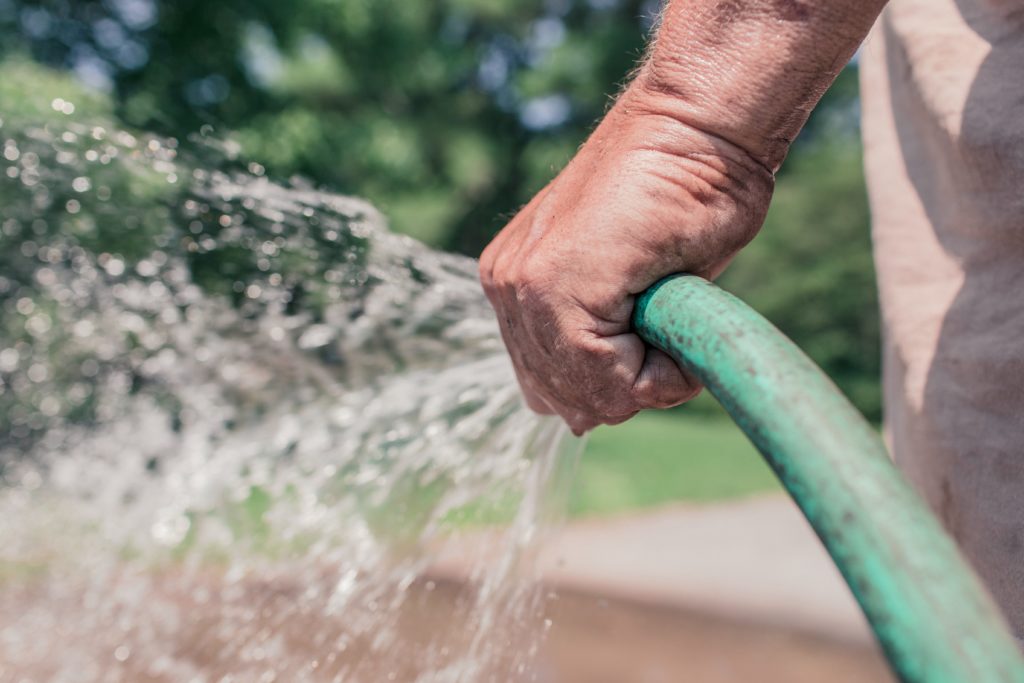Drought-linked water restrictions officially lifted on Sunday [November 1], signalling a new phase in Team Cape Town’s journey. Residents are encouraged to remain water wise and to continue using water responsibly, as guided by the City’s Water By-law.
For the first time in six years, thanks to a massive collective effort from Team Cape Town, our city will be without drought-linked water restrictions.
Even though many of the more stringent restrictions have now been lifted, residents and businesses are reminded that the permanent regulations in the Water By-law still apply, regardless of the restriction level. These are as follows:
Outdoor water use and groundwater
– Watering only allowed before 9am or after 6pm (to avoid evaporation losses in the heat of the day). This applies to watering with municipal drinking water, and is also recommended for alternative water e.g. borehole and well-point water.
– Automated sprinkler systems (where permitted) must be able to be correctly positioned and be able to be adjusted to prevent water wastage.
– Hosepipes used for watering or washing vehicles, boats and caravans (when permitted) must be fitted with a controlling device such as a spray nozzle or automatic self-closing device.
– No hosing down of hard-surfaced or paved areas with municipal drinking water allowed. Water users, such as abattoirs, food-processing industries, care facilities, animal shelters and other industries or facilities with special needs (health/safety related only) must apply for exemption.
– Outdoor taps, except those on residential properties, must be secured to prevent unauthorised use.
– The City recommends that alternative water sources like boreholes and well-point water must also be used sparingly and efficiently.
Efficiency of taps, toilets and showers
– The maximum flow rate of new and replaced shower heads may not exceed 7 litres per minute.
– The maximum flow rate of any tap installed at a washbasin may not exceed 6 litres per minute.
– New or replaced toilet cisterns may not exceed 6 litres in capacity.
– Handwash basins and showers provided at public facilities must be fitted with demand-type taps.
Swimming pools
– All swimming pools must be covered by a pool cover to avoid evaporation when not in use.
– Automatic top up systems using a float valve fed from a municipal drinking water source to supply swimming pools and garden ponds are not allowed.
Car washes
– Commercial car wash industries must comply with industry best-practice norms regarding water usage per car washed (e.g. recycling and re-using a minimum of 50% of the water used).
Construction sites
– Municipal drinking water may not be used to dampen building sand and other building material to prevent it from being blown away.
Leaks
– Check your water fittings and pipes regularly for leaks. Residents can learn how to do so here: Link
“Team Cape Town has showed not only our country, but the world, what can be achieved when we come together to tackle a crisis. The lessons learnt will continue to stand us in good stead as we write the next chapters of our water story,” said City’s Mayoral Committee Member for Water and Waste, Alderman Xanthea Limberg.
“As we are released from drought-level water restrictions, we are all reminded to hang onto our water-wisdom as we adjust to the relative freedoms that come with dams being full. I believe that Capetonians have what it takes to exercise discretion and good judgment in considering relaxation of water saving efforts in the coming weeks or months, as and when they feel comfortable enough to do so. The onus is on all of us to use water responsibly as we have learnt that we cannot take the availability of this precious resource for granted.”
Cape Town is located in a water-scarce region, and our climate is proving increasingly unpredictable. In response to this, the City is enhancing its management of existing water supply, and investing in new water sources to build resilience and water security for this generation and generations to come.
“The City’s New Water Programme aims to increase available water supply by 300 million litres per day over the next 10 years, reducing reliance on surface water and the vulnerability associated with it,” added Limberg. “The New Water Programme projects – those currently under way and on the horizon – are designed to put us in a position in which very high-level water restrictions should not be required again in the near future.
“Residents will see changes in their water bills, depending on their billing cycle and how much water they use. The City seeks to keep costs of service delivery as low as possible, and tariffs are designed to cover those costs, without over-recovery,” concluded Alderman Limberg.
Also read: What ratepayers need to know about water tariffs
Picture: Pexels

